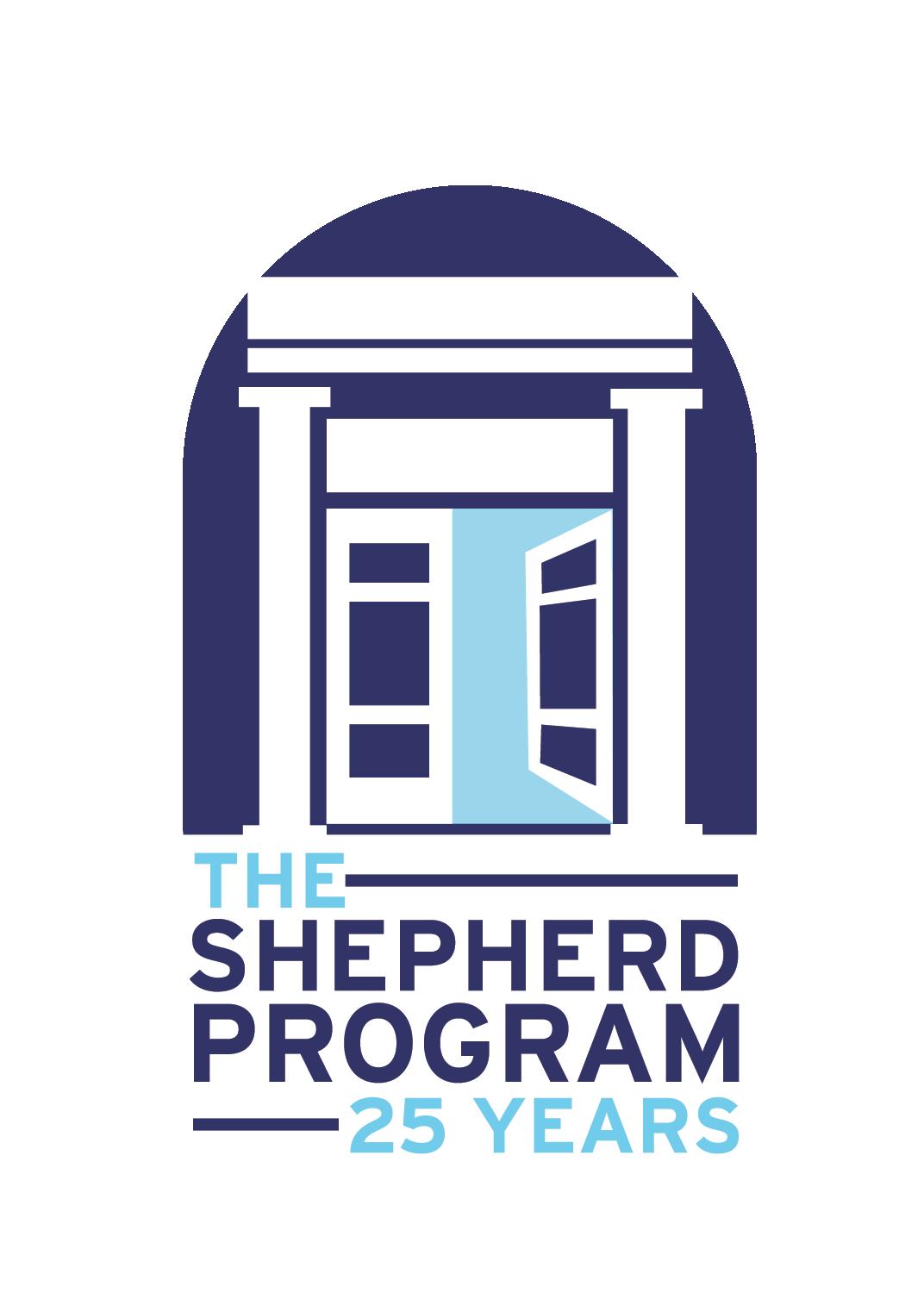SHEPHERD



On the Cover.
The colorful mountains painting was created by Marisa Charley.

Whatever your major, background, career path, or political perspective, if you have a passion for a better, more just world—with real opportunity for all—come join us.
Our world needs you. Our world is in desperate need of people with moral and intellectual integrity. That’s something I say a lot these days. But what exactly does it mean?
Intellectual integrity? That’s what you have when you follow the best evidence and the best arguments wherever they may lead. When you have intellectual integrity, you want to know what is, in fact, true. You want to know what’s true, even if that truth is uncomfortable. You’re willing to lose the debate—even want to lose the debate—if it turns out you’re wrong. It means you want to be right, rather than just sound right.
Moral Integrity? That’s what you have when you follow the consequences of respecting the dignity of every person wherever they may lead. When you have moral integrity, you want to know what is, in fact, right and good and respectful. You’re willing and want to do the right thing, even when it’s inconvenient. It means you want to do good, not simply feel good.
Humility? Both moral and intellectual integrity require humility: the humility to admit what you don’t know but also the dedication to learn more—with help from others; and the humility to admit your limitations but also the dedication to do and be better—again, with help from others.

Shepherd is a transdisciplinary program that believes we learn best when we listen carefully to the insightful voices both within and beyond the university: scientists, humanists, artists, activists, community leaders, and those most impacted by poverty and inequality. To understand and address those impacts both effectively and respectfully, we combine thought and action—and ground it all in a bedrock commitment to the dignity of each and every person.

A Shepherd education is rooted in the rich, innovative teaching of W&L faculty affiliated with the program. Students are encouraged to understand the complex nature of poverty from a host of disciplinary angles. The firsthand accounts below provide a window into that learning from the student perspective. n


As an incoming freshman, I was randomly placed into professor Molly Michelmore’s HIST 268 my fall term and had no idea what to expect. Not intending to be a history or politics major, I entered the course viewing it as an opportunity to fulfill an FDR; I left it with a newfound understanding of racially discriminatory housing policy and a passion for addressing its impact on modern ghettoization and disparate poverty outcomes. During the class, we read a lot of historical literature such as Thomas Sugrue’s The Origins of the Urban Crisis, Kevin Kruse’s White Flight, and Michelle Alexander’s The New Jim Crow to understand the evolution and unfortunate rationalization of residential segregation. The class culminated with a final paper where I chose to coalesce my learning with my interest in health and researched health disparities as a product of residential segregation.
Through this activity, I was able to explore the intersection of history and health by learning about how historical housing discrimination has created and perpetuated health inequalities in marginalized communities of color. The topics covered in the class were also deeply connected to subjects we were learning about in POV 101, particularly affordable housing, mass incarceration, and eviction.
Apart from learning to write better and read proactively, this class taught me about problems I never knew existed and challenged me to synthesize my understanding to evaluate current policies and social outcomes. Understanding the historical context for ghettoization and the affordable housing crisis today was extremely illuminating, but also heartbreaking; I hope to take on a project someday that addresses housing insecurity and the correlated health disparities in conjunction. Most importantly, this course emphasized that in order to address the consequences of poverty, we must understand the causes. Having an accurate, holistic perspective is key to comprehending how inequalities originate so that our solutions are proactive, not retroactive. n
I took SOAN 222 with Professor Jon Eastwood because I wanted to expand my data analysis toolkit and learn more about how data science could answer social policy questions as a student interested in evaluating the impact of public policy on poverty and inequality.
In this class, we began by discussing the role of social theory in analyzing the need for and effects of public policy. Then, we reviewed linear models and the assumptions that they rest upon, and studied causal inference overall. We examined causal systems using directed acyclic graphs (DAGs) to illustrate our assumptions about the world. DAGs were also helpful in showing how our regression models could be biased by us neglecting to condition on confounders or mistakenly conditioning on colliders and mediators. Afterwards, we learned about using statistical inference to gauge the precision of our estimates. We also discussed tools that are useful for working with observational data where assignment to treatment is not randomized: instrumental variables, differences-in-differences, and regression discontinuity.
This was one of my favorite classes at W&L because I knew that everything we learned was preparing us for a career in public policy. The material was very complex, so I quickly acknowledged that I needed to ask lots of questions to ensure I was grasping everything fully.
I’m now more appreciative of the role of statistical tools in determining the effects of policies—whether they did what they were intended to do, harmed the communities they were meant to benefit, or had little to no effect at all. n
By: Tanajia Moye-Green ’23
Although this course may seem like it’s solely for students on the pre-med track, the course “Medicine, Research & Poverty” can certainly be applied in other subjects. I took this course
Spring Term as an Economics major with minors in Education Policy and Poverty Studies.

The class was set up differently from traditional courses. Rather than being taught a concept and applying it to problems, we were thrown into the water with a problem, asked to try to solve it, and then taught the correct resolution. As a result, we were fully invested in cases and could grasp concepts easily.

The problems didn’t have a straightforward solution. They were real world, complex, ethical cases that required you to make impactful decisions and sacrifices.
We would have to consider questions such as “How can we best allocate scarce medical resources?”, “Who is deserving of them?”, “How much responsibility does our role hold?”, “How do we value autonomy when research could benefit the entire community?”.
Luckily, we didn’t have to figure out the solution alone as the class primarily consisted of group work. Each person in the group was given a stakeholder position (researcher, subject, community advocate, parent, etc.) and was required to take the point of view of that person and advocate/negotiate like them. Figuring out the solution to a case felt like finally completing a puzzle or solving an escape room. The class left me thinking about ethical questions in other aspects, too. In my case, it helped me ethically understand how to allocate scarce resources to educational institutions. n
ACCT 256
Federal Tax Policy & Planning Bovay
ARTH 274 Art and Revolution: Mexican Muralism Lepage
ARTH 378
Border Art: Contemporary Latinx Art Lepage
BIOL 275 Food for Thought Blythe
CBL 100
Intro to CBL: Unheard Voices Goluboff
CBL 200 Peer Mentor Training for CBL Goluboff
CBSC 269 Stereotyping, Prejudice, and Discrimination Woodzicka
CBSC 295A Addiction Jenney
CBSC 296A Intergroup Dialog Rodriguez-Newhall
ECON 235 Economics of Social Issues Goldsmith
ECON 236 Economics of Education Naven
ECON 239/ EDUC 239 Explore Childhood Scandinavia Diette and Sigler
ECON 241 Economics of War and Peace Silwal
ECON 276 Health Economics in Developing Countries Blunch
ECON 280 Development Economics Casey
ECON 377 Global Public Health Blunch
EDUC 200 Foundations of Education Sigler
EDUC 230 Educating Citizens in Democracy Moffa
HIST 268 Race, Class and Politics in Postwar America Michelmore
HIST 269A History of the Civil Rights Movement Dennie
HIST 269A/ LIT 295A Slavery and Colonialism in the African Diaspora Dennie and Kamara
JOUR 295B Framing Race in Media Cólon
MESA 395 Islam and Human Rights
Al-Ahmad
PHIL 247 Medicine, Research, and Poverty Taylor
PHIL 346 Medical Ethics Taylor
POL 247 Latin American Politics Ponce de Leon
POL 250 Race and Equality Morel
POL 255 Gender & Politics LeBlanc
POL 288 Food, Shelter and Space LeBlanc
POL 380A Immigration Attitudes Ponce de Leon
POL 396 Gandhi and His Critics Gray
POV 101 Poverty and Human Capability: An Interdisciplinary Introduction M. Bell and Pickett
POV 102 Introduction to Community-Based Poverty Studies Charley and Pickett
POV 191 Blue Ridge Mile Clinic Elrod
POV 197 Bonner Program Charley and Elrod
POV 202 Respect, Community & Civic Life Charley
POV 232 Race, Poverty and Education Policy Diette
POV 249 Poverty, Oppression and Privilege Pickett
POV 280 Poverty Law Shaughnessy
POV 296 Justice and Mercy: Philosophical and Religious Perspectives Pickett
POV 423 Poverty: A Research Seminar Goldsmith and Pickett
POV 491 Uncertainty Eastwood and Pickett
REL 220 Whose Law? Pluralism, Conflict and Justice Lubin

SOAN 215 Anthropology of Disability A. Bell
SOAN 222 Data Science Tools for Social Policy Analysis Eastwood
SOAN 263 Poverty and Marginality in the Americas Perez
SOAN 278 Health and Inequality: An Introduction to Medical Sociology Chin
SOAN 290A What is Power? Perez
SOAN 290A Global Urban Sociology Perez
SOAN 291A Politics, Gender & Culture in Globe Dogan
SOAN 291B Gender & Migration Dogan
Every fall, I teach Poverty and Marginality in the Americas. In this course, we discuss the interrelated sources of disadvantage and exclusion in different countries. We work based on two principles. First, empathy is a powerful research tool: understanding people’s circumstances leads to better policies to empower and help them. Second, simplistic solutions to complex problems are likely to fail: no social process happens in isolation, and thus unidimensional “silver bullets”, while politically alluring, are usually less effective.
—Marcos Perez, Sociology
Sinan Abuzaid ’22
Medical Oppression: The Structural Mistreatments of African Americans in the Health Care System
Lexi Baumeyer ’22
Modern Nature vs. Nurture: Why the Genetic Lottery and Epigenetics Matter for Social Justice
William Baya ’22
Inadequate Workforce-Skillset as Corrosive Disadvantage: Enhancing Marketable Skills to Combat Homelessness and Housing Issues
Camilla Beeley ’22* Rockbridge Health COVID-19 Screening Protocol Improvement Project
Aoife Chow ’22
Who Gets Hurt: Sexual Exploitation Among Women During Episodes of Homelessness
Andrew Claybrook ’22
Beyond Books: Understanding Libraries and Information Sources and Resources Against Poverty
Bella Daher ’22 Professional Collaboration: Physician Role in Addressing Health Disparities in Community Health Centers
Joey Dickinson ’22* Discrimination and National Identification among Immigrants in Germany and Austria
Annie Furr ’22
More Than Do No Harm: Combatting Medical Mistrust in the Black Community Through Physician-Targeted Improvement
Max Gebauer ’22*
Central Capabilities and Anthropogenic Climate Change: The Subsistence-Luxury Emissions Distinction Revisited
Elizabeth Grist ’22
Dual Reality: Opioid Use Disorder among Pregnant Women and Their Children
Mary Wilson Grist ’22*
Poverty and Childhood Sleep Disadvantage: An Early Intervention Approach
Betelihim Haile ’22
The Impact of Childhood Chronic Toxic Stress on Adult Well-being in Impoverished Communities
Hank Harmon ’22
The Injustice of Giving: Income and Racial Inequality in the United States Loanable Funds Market
Andrew Harris ’22* Games and Activities for Child Development: Lexington City Office on Youth
Maggie Hawley ’23
Invisible Harms: Barriers to Undocumented K-12 Students’ Education
Caro Herrera ’22
Behind Desks & Bars: The Impact of Latino Underrepresentation in the Workforce of the Criminal Justice System
Sarah Hollen ’22*
Lithium Mining at Thacker Pass: An Emerging conflict Between “Clean” Energy and Environmental Justice
Savannah Johnson ’22* Program Assessment for Rockbridge Area Community Services Board’s Outpatient Program
Anthony Kim ’22*
Logging Hours: Time Spent on the Internet is Negatively Associated with Job Satisfaction
Jeremiah Kohl ’22*
The Effects of Dual Enrollment on Postsecondary Enrollment: Evidence from a National-Level Event Study
Kushali Kumar ’22
Impact of Transportation Barriers on the Labour Force Participation of Women in India
Claire Lacksen ’22
Sacrificing the Mentality of Childhood: Barriers Facing LowIncome Children with Mental Illness
Sydney Lee ’22
In the Eye of the Storm: How Climate Disasters Disproportionately Affect Vulnerable Populations
Justin Littlejohn ’22* Community Cooling Solutions: A Social Venture Addressing Inequitable Urban Heat
Yuhan Liu ’22
Human Capital or Human Capability: Basic Education from a Capability Perspective
Dolph Maxwell ’22
A Call for Country Doctors: Disparities in Rural Health and Healthcare
Frances McIntosh ’22*
Insufficient Institutions: The Disproportionate Impacts of Climate Change Along South Carolina’s Coast
Bri Mondesir ’22*
Searching for Stability: The Intersections of Environment, Income and Health
Chloe Parsons ’22
The Art of Oppression: How Art Museums’ Practices and Collections Perpetuate Inequality
Ella Powers ’22*
Exploring a New Community Partnership for an Essential Service in Rockbridge County
Will Robertson ’22
Fatherlessness: A Look at One of America’s Most Pervasive Social Problems
Diana Rodriguez ’23
Accessible, Affordable, Quality Healthcare for Low-Income Immigrant Communities
Marilyn Sample ’22*
Protestants and the Poor: How Religiosity Affects Support for Social Welfare Policy
Janeth Sandoval ’22
Healthcare Initiatives: Necessary Factors in Addressing the Hispanic Health Gap
Ashley Shugar t ’22
Narratives of Food Insecurity
Patrick Slattery ’23
Understanding the Role of Accounting and Finance Skillsets in Social Impact Work
Mansi Tripathi ’22*
How do “Victims” Become “Criminals?” Examining the Power of Language in Criminalizing Homelessness
Nick Watson ’22
Social Impact Investing: Market Failures in the Market Place for Solutions
* Indicates a capstone project completed outside of POV 423
Obtaining a Virginia driver’s license is not always an easy right to earn. When that privilege has been lost because of a violation or a failure to update the license, getting the permit back in the Commonwealth of Virginia can be extremely challenging.
Buena Vista District Court Judge Robin Mayer was shocked by the number of community members coming through her courtroom without a driver’s license, so she reached out to Fran Elrod, associate director of W&L’s Shepherd Program, about working with students to address the issue. The students have subsequently formed the Blue Ridge Mile Clinic (BRM) to provide support to local residents.
The Blue Ridge Mile Clinic is a Lexington-based program that partners with Virginia’s Drive to Work initiative to help individuals gain or restore their driving privileges. The clinic combines several ongoing efforts to address licensing problems around Rockbridge County.
Through the partnership with Drive to Work, students involved in the clinic are trained to understand the complex laws about licensing and help individuals fill out the necessary forms to obtain or reinstate their driver’s license.
Elrod taught a one-credit Winter Term course focused on understanding the laws pertinent to the clinic and engaged in direct client service. Members of the organization learned about licensing and advocacy, and engaged with speakers to gain a more holistic understanding of the issue.
Ryan Zimmerman ’22, a student leader in the clinic, believes acquiring a driver’s license is more than getting access to transportation. It opens the doors to much broader personal and professional prospects.
“I’m excited to start helping people obtain their driver’s license because it’s our country’s universally accepted form of personal identification, as well as a crucial requirement to legally operate a motor vehicle,” Zimmerman said. “In simple terms, a license is a significant ingredient for a person’s productivity and success. In the long run, I am excited to see where this organization can go and the many ways in which we can make an impact, helping the most amount of people possible while providing college students eye-opening and educational experiences.” n
By Avani Kashyap '25, full article at columns.wlu.edu
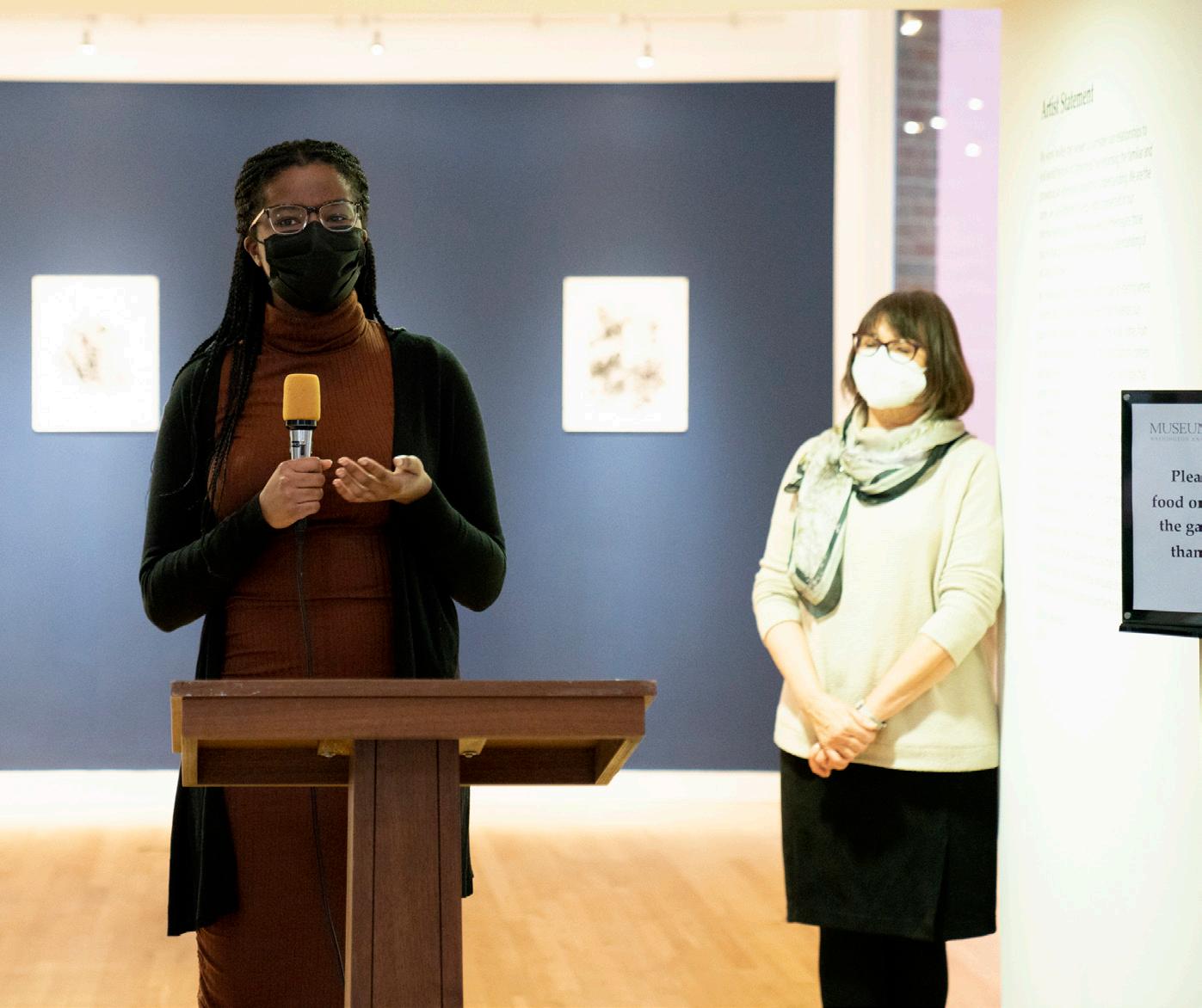
Q: What is your role in this exhibit?
Posi: I am the student curator for this exhibit, meaning that I worked very closely with Patricia Hobbs, who is the senior curator, in talking with the artist and choosing the works that will be shown in the galleries. A lot went into the process because there were many considerations we took to make sure that perspectives were being represented accurately and that we were targeting the broad audiences of Rockbridge County with our work.
Q: How did you first get involved?
Posi: I first got involved through Dr. Sanchez, who was my professor in Anthropology of Public Policy. I wrote my final paper on Hair Discrimination in various spheres of social, academic, and professional life in the US, and she connected me with the Museums because they had secured an artist who used the ‘curly line’ as a medium to express various themes, many of them relating to experiences with hair throughout history and in the present as well. It was a good fit.
Q: Do you have any big takeaways from this experience?
Posi: I was really lucky to be a part of this exhibit. I learned how to communicate effectively with everyone I was working with, from the artist to the associate director, Isra El-Beshir. It was also important for me to advocate for my unique perspective while planning this exhibit. As a black woman, the way I view Sharon Norwood’s work will be different from the way the majority of the campus might view her work, so my contribution to this project was important to make sure that certain elements weren’t left unsaid or unrepresented. n
Community Cupboards, a miniature food pantry pilot program that offers Rockbridge County residents a rotating menu of nonperishable groceries, is the latest collaboration between Washington and Lee and the Virginia Cooperative Extension to bring a new resource to the local community.

The miniature food pantry project began in a brainstorming session between Sarah Blythe, Associate Professor of Biology, and Rebecca Wilder, Virginia Cooperative Extension family and consumer sciences SNAP-Ed agent. Students in Blythe’s course, Food for Thought: Topics in Nutrition and Metabolism, identified five locations in the county to place miniature food pantries. The pantries, which were erected in early November, contain food, recipes, and nutrition information. Students in Howard Pickett’s course Fieldwork in Poverty and Human Capability stocked the pantries and collected usage data throughout Winter Term.
Howard Pickett, director of the Shepherd Program and associate professor of Poverty and Human Capability Studies, knew he wanted to include a CBL project in his Winter Term class, POV 102, which includes coursework on food justice and food insecurity. After reaching out to the Office of Community-Based Learning to discuss available projects, he quickly identified an opportunity to continue the Community Cupboards project in alignment with the Cooperative Extension’s goals.
“It’s important to us in the Shepherd Program to model a particular type of effective, respectful collaboration with community partners and to try to build on what community partners are already doing,” Pickett said. Pickett’s course encouraged students to examine how the project weaves together the complex considerations involved in addressing food insecurity. Class discussions explored the value of localized community efforts such as Community Cupboards in the context of larger structural support systems that address food insecurity.
Ryan Brink ’18, who serves as the coordinator for Campus Kitchen at Washington and Lee, visited Pickett’s class early in the term to provide students with context for the Rockbridge community’s current food relief efforts.
“I wanted them to consider what’s currently happening and how to think about barriers to access as well as potential roles they can fill,” Brink said.
Wilder and Brink consulted with students on their final reflections and a handbook the class created to aid volunteers and community partners in picking up the next phase of the project. Wilder is in conversations with Campus Kitchen, the Shepherd Program, and other community organizations to create a long-term plan for stocking the boxes. Wilder likened her experience working with Pickett’s class to having a team of consultants.
“Students going through the Shepherd Program are trained to think in a different way,” Wilder said. “For example, one of the students suggested we put a bag holder on the pantries so that people have a bag to put their groceries in, since some might be walking. They really provided some great ideas for how to make this the most comfortable experience for people who are participating.”
Dickovick said this project is a great example of what the Office of Community-Based Learning hopes to achieve when facilitating collaborations between faculty and community partners.
“We’re always asking ourselves, ‘How can we build and scaffold projects that students do in one class and take them to the next level,” Dickovick said. “This is what happened with this project. I think this shows the depth and breadth of what CBL can do.” n
POV 102 students stock cupboards during Winter Term.
By Kelsey Goodwin, full article at columns.wlu.edu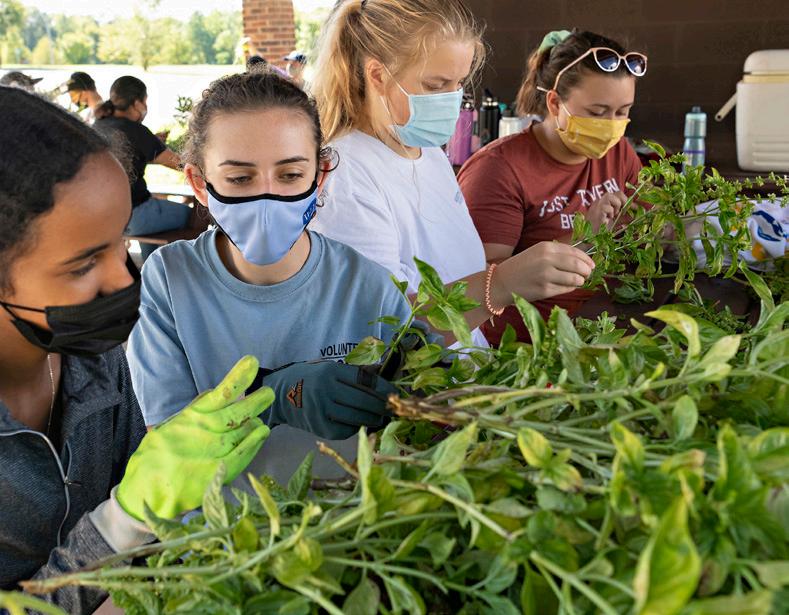

Volunteer Venture (VV) is a service-learning Leading Edge program for incoming students. Sponsored by the Shepherd Program, VV allows participants to build meaningful relationships and explore issues related to poverty, injustice, and opportunity through service with community-based agencies, guest speakers, and group discussion related to a thematic issue. Topics for the 2021 experience included childhood, food and housing insecurity, law and (in)justice, and the social determinants of health. n 6 Trips | 5 Cities | 30 Peer Leaders | 89 First-Year Participants
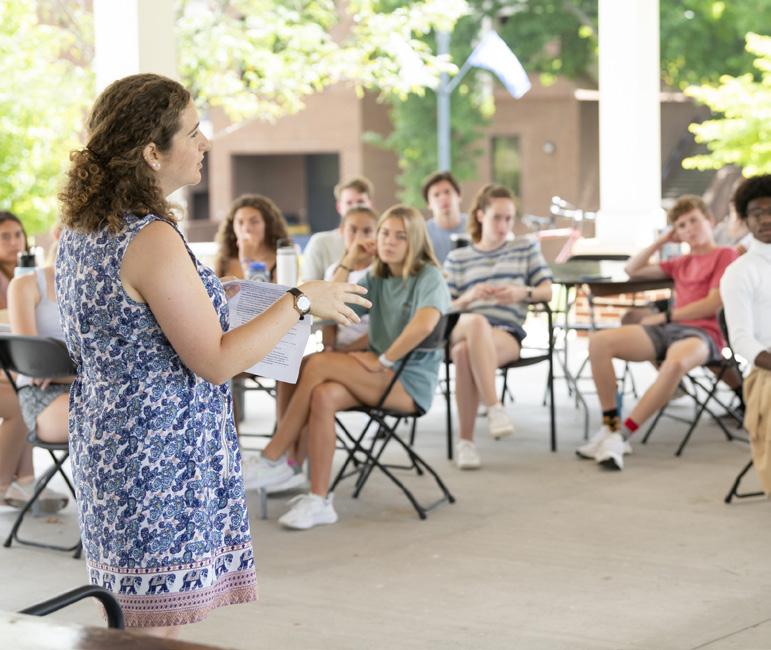
The most valuable aspect of my VV experience was getting to know more about the community in which I was engaged with for the week. Everyone was smart, honest, and critical when discussing the issues with food and housing insecurity observed in Charleston.
During our last debrief together as a trip, participants managed to tie in every major activity from the week. It was amazing seeing them connect all the dots and speakers to the greater mission of Shepherd. I don’t think I had even recognized the connectedness they had uncovered until they brought it to my attention. That was pretty special. And that’s why I love being a part of VV.
I loved my group and leaders so much. They helped me widen my perspective on life in forms more than just poverty related. The discussions we had were probably my favorite parts of the day.
W&L’s Bonner Program is an initiative of the Corella and Bertram F. Bonner Foundation and the Shepherd Program. Bonner Scholars are committed to working alongside communities to develop as professional and civic leaders, foster relationships, cultivate community, and work to create increasingly compassionate systems.
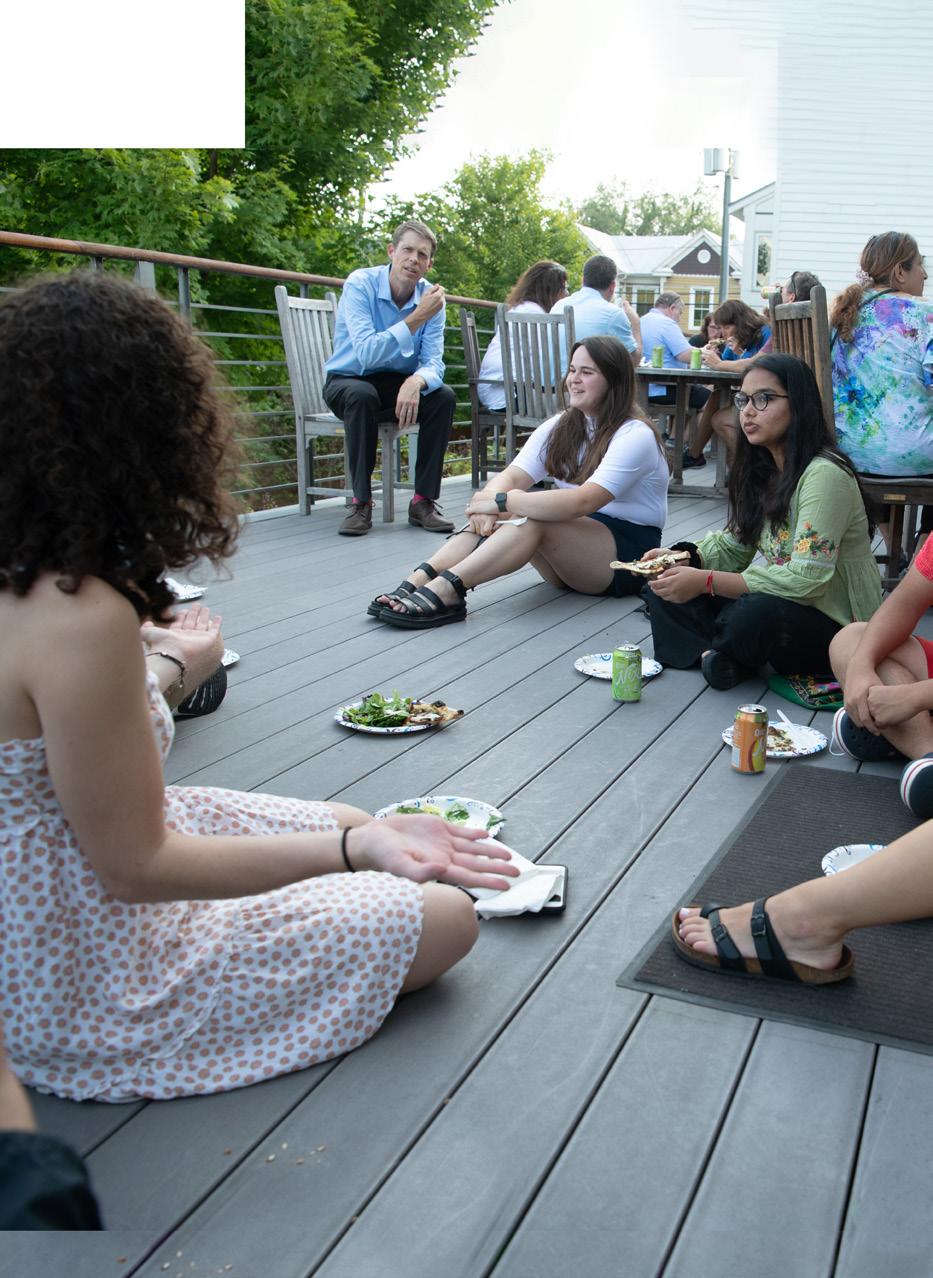


Bonners serve in internship-style community partnerships for 8-10 hours per week throughout their time as a student, and complete at least one summer of service. In addition to the professional development offered by these opportunities, students participate in a credit-bearing academic developmental model that is rooted in the poverty and inequality studies curriculum of The Shepherd Program. Critical and creative reflection, paired with trans-disciplinary approaches to complex social issues, creates a rich landscape for exploring the problems associated with poverty and inequality, and for developing a purposeful civic life. n
I have been able to merge my academics, personal interests, and passions into a truly unique and interdisciplinary Bonner experience. Since my freshman year, I have served in the roles of Prevention Coalition Intern at Rockbridge Area Community Services and as a Campus Kitchen Leadership Team member at the Washington & Lee Campus Kitchen program. Through these programs, I have discovered the interconnectedness between poverty, food insecurity, and mental health. This upcoming year, I am working to begin a new pilot program with Campus Kitchen to serve hot meals to local, at-risk youth. Following my senior year, I intend to further my education in medicine/public health to address health inequities in underserved communities.
Transitioning back to any semblance of normalcy has been incredibly difficult, however, engaging with community—both inside and outside of the classroom—eases some of the stresses of the daily world. Being able to safely spend time with partners in their environments reinvigorates passion and allows deeper relationships to form. One of my favorite things has been reflecting with my fellow classmates about the work that they’re doing; as we have returned to in-person meetings, Bonners have sparked conversations about how engagement looks different than it used to, encouraging the group to grow together as our community heals.
Building on a broad base of community engagement during her first two years and inspired by coursework with Professor Deborah Miranda exploring indigenous narratives, Ella Powers ‘22 joined the university’s newly formed Native American and Indigenous Cohort in her Junior year as the first student representative. Her leadership quickly took root as she established the Native American Student Organization (NASO), creating a space for indigenous identified and allied students. In the fall, Ella and the NASO team organized the Indigenous meal pictured above. True to her Bonner nature, Ella’s focus for NASO also looked towards understanding and supporting needs of the local Monacan community. For her Bonner Capstone, she served as liaison between RARA, Campus Kitchen, community members, and W&L in exploratory conversations about addressing food insecurity in Buena Vista.
The mission of The Campus Kitchen at Washington and Lee (CKWL) is to strengthen bodies, empower minds, and build communities through food. Student leaders coordinate food preparation and delivery logistics, attend events and discussions, and work with staff to facilitate financial stewardship and development for the organization. n
At CKWL, we promote nutrition and address the issues of food waste and food insecurity in Lexington and Rockbridge County. We work towards this by transforming food that would otherwise go to waste into balanced meals for low-income members of the community, as well as collaborating with community organizations to provide groceries through our Mobile Food Pantry, Backpack, and Produce Delivery Programs.
Food Received: 6750 pounds
Nutrition Education Instructional Hours: 2,256 hours Lbs to MFP and Produce Programs: 37,435 Backpacks: 43,782
Jordan Jontz ’24 and Mary-Kathryn Murphy ’23 deliver a meal to The Community Table, a new delivery site partnership established this year.

We collaborate with other student organizations at W&L and the wider Rockbridge County in joint events around relevant topics to the food system. During students’ time with CKWL, they develop meaningful relationships with clients that go beyond service. Our students learn to think critically about the variety of ways that they can have a lasting impact within our community by supporting existing organizations and projects.
Volunteer Hours: 4,533
#HungerFighters Cohort Members: 15 Campus Kitchen Leadership Team Members: 43
During a Turkeypalooza cooking shift, student volunteers prepare turkey and fixings for clients.

This year, the Campus Kitchen planned and executed an exciting new event series looking at the way that food systems interact with issues of justice. This series, titled Just Food, featured discussions of Land Access, Redlining, and Food Sovereignty. The Campus Kitchen develops student understanding of the context in which food insecurity and food waste arise, and this public event series engaged participants beyond the Campus Kitchen Leadership Team. By cultivating an understanding of the broader system in which food insecurity persists, the Campus Kitchen fosters students’ abilities to identify the root of the issues they are passionate about addressing and encourages them to think beyond the meals they provide to the ways in which we can all work to ensure equitable access to food in the future.
CKWL Leadership Team members, #Hungerfighters, and other interested students learn about the Indigenous Community Garden on a field trip to the Indigenous Community Garden at Virginia Tech.

The Nabors Service League, in collaboration with community-based agencies, connects students with opportunities to learn, serve, and reflect on issues of poverty and justice. The student leadership team is comprised of four committees: Local Service, Educational Programming, Alternative Breaks, and Good Nabors Mentorship. The Good Nabors program provides a first-year cohort of students a structure for community engagement, reflection, and learning. n
NSL’s educational series focused on childhood, featuring religious ethicist and founding director of the Shepherd Program Harlan Beckley, VMI psychology professor Sara Whipple, Shepherd alumni Madison Sanders ’16 and Mike White ’10, and local community partner BreAnne Rogers of the Rockbridge Area Community Services Board. Good Nabors participants had the opportunity to partner with the Live Healthy Rockbridge Coalition to research economic impacts, advocacy efforts, and best practices for childcare in our community.
Through the Good Nabors program, NSL offers the opportunity for first-year students to intentionally commit to service in the Rockbridge community and learn and reflect on critical issues related to poverty and inequality with peers and peer mentors.
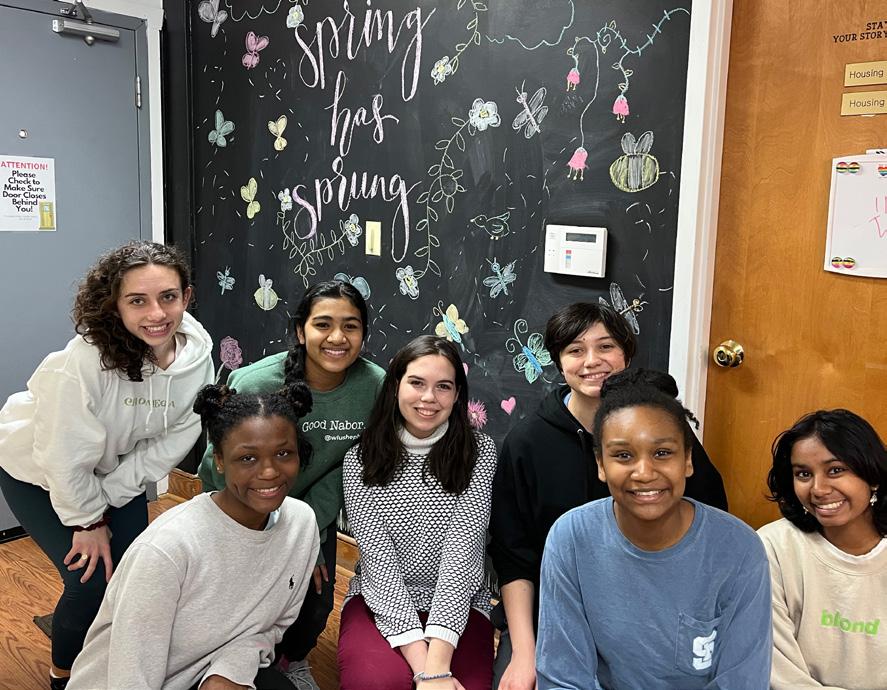
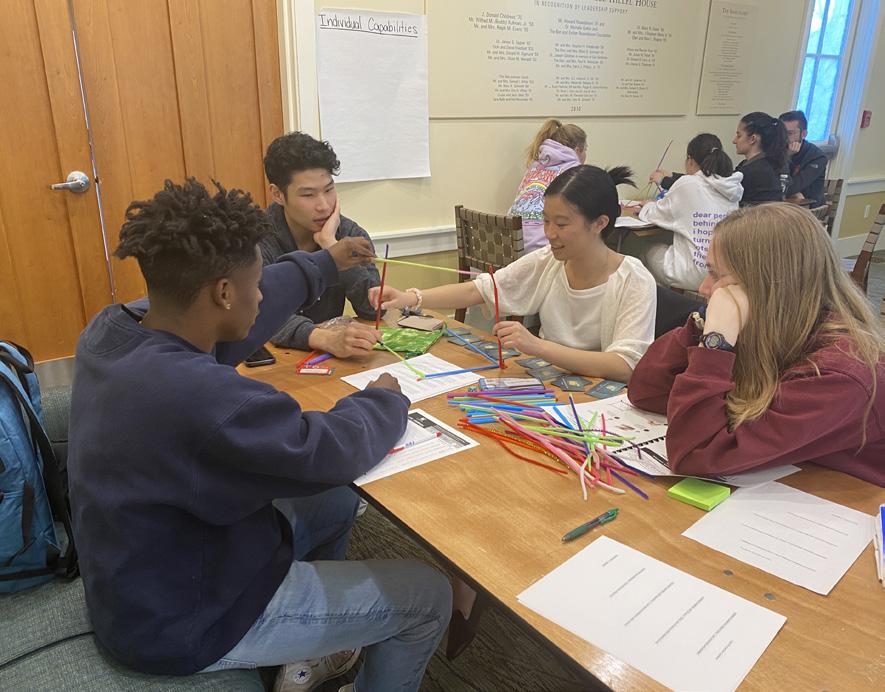
This year, NSL hosted four Nabors Service Days, connecting W&L students with opportunities to volunteer at twenty unique agencies in the greater Rockbridge community.

Number of participants: 37
We provide opportunities for students to understand the causes and consequences of poverty and inequality in ways that respect the humanity of all people through eightweek summer internships. While students approach the experience with an eye toward professional development, it is equally important for them to understand that learning will come in ways they least expect.
Shepherd internships are located in various urban and rural sites in the United States and globally, with a focus on education, health care, legal services, housing, hunger, social and economic needs, and community-building efforts.

Many W&L students intern through the Shepherd Higher Education Consortium on Poverty (SHECP). In the fall of 2021, W&L was selected as the new academic home of the consortium. As part of the transition, Timothy M. Diette, professor of economics at W&L and longtime core member of the W&L Shepherd team, became SHECP’s new executive director. n
I had the opportunity and privilege of working with two organizations that eliminate homelessness through secure housing, property management, economic development, and/or social impact. At Bastogne Development Partners — a real estate development firm that specializes in housing projects around Philadelphia, Pennsylvania — I was responsible for compiling court research and evidence for a Pennsylvania Conservatorship, working on property inspections for a new Germantown Community Land Trust project, and planning a design session for a new committee that focused on tenant-landlord management and relationships. I also spent time in Hartford, Connecticut working with a nationwide nonprofit organization known as Community Solutions. I was responsible for completing research on a blighted property survey, using Geographic Information Systems and directly connecting with members of the community while establishing the foundations for a new community land trust project. Overall, my Shepherd internship allowed me to narrow the scope of my career interest, meet people who were actively making a difference in their communities and laid the foundation for my senior capstone project.
For my Shepherd Internship last summer, I served as the Criminal Justice and Re-Entry Program Intern for the U.S. Federal Courts under the Honorable Judge Noel L. Hillman. My primary responsibility was assisting the Judge with ReNew Re-Entry Court, a federal re-entry program for formerly incarcerated individuals deemed at significant risk of violating post-conviction supervision. At ReNew, I helped participants access education/job training opportunities and meet conditions of their supervised releases. A meaningful part of my Shepherd internship was helping participants acquire union jobs in their areas of interest. While these jobs offer increased stability, they have complicated eligibility requirements that can be difficult to navigate for someone newly re-entering society; my work at ReNew addressed that. I also enjoyed the opportunity to observe the Judge during proceedings and in the Judge’s Chambers. This internship confirmed my interest in pursuing a public interest legal career.


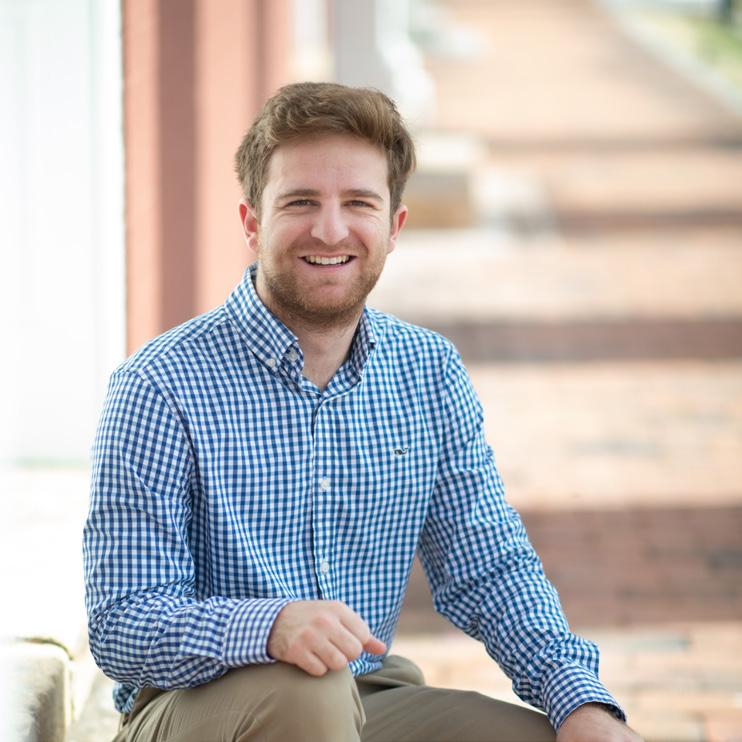
I interned at Sacred Heart Center in Richmond, Virginia. It is a multi-resource center for the Latino community in the city of Richmond that provides food, health, education, childcare, etc. I worked mainly in their summer youth programs: Cielito Lindo, a summer camp program for ages 6-12, and Casa Lapiz, an art program for middle schoolers. I learned a lot, but my favorite thing was understanding how an organization effectively serves an intersectional community. The Latino population is under-represented and still has several distinct cultures. Sacred Heart honors that and establishes a relationship with the community that is rooted in dignity and genuine care. They address the community’s needs in ways that are accessible, creative, and mindful. It’s not enough to donate to a problem, nor is it right to declare what the problem is without speaking to those who face it. The world needs more collaboration. That is why I intern.
I worked at the Cabell Huntington Health Department in the Harm Reduction Program. This program is geared toward providing resources to prevent the spread of HIV & STDs, specifically for a population heavily addicted to drugs. I got the opportunity to meet with the clients one on one and encourage them to participate in STD & HIV testing, practice safe use habits, and receive naloxone. My favorite part was the people I got to work with and serve. Hearing about the experiences of these people on a day-to-day basis was enlightening and allowed me to develop a level of empathy for the clients. To me, the systems we have in place now do not fully serve impoverished communities, so I find it important to help create balance in unequal, unjust systems. This experience gave me the opportunity to develop empathy for one of the most stigmatized populations and inspired me to seek out opportunities to serve other groups.
Sarah Beaube Jubilee Jobs Washington, DC
Anna Bosking Blue Ridge CASA Lexington, VA
Otice Carder Life Pieces to Masterpieces Washington, DC
Christina Cavallo National Community Action Foundation Washington, DC
Andrew Claybrook Rockbridge Area Relief Association Lexington, VA
Finn Connor Federal Judge Hillman Camden, NJ
Emma Conover W&L Campus Kitchen Lexington, VA
Bella Daher Brookview House Boston, MA
Joey Dickinson Atlanta Food Bank/ Community Foundation Atlanta, GA
Lucy Donahue Rockbridge Area Relief Association Lexington, VA
Lauren Ellenz Tapestri Inc. Atlanta, GA
Gabby Emge Guilford County Police Greensboro, NC
Kamryn Godsey Sacred Heart Richmond, VA
Leyla Hatfield Health Right Free and Charitable Clinic Charleston, WV
Maggie Hawley Rockbridge Area YMCA Lexington, VA
Sarah Hollen Boxerwood Nature Center & Woodland Garden Lexington, VA
Sion Jang Habitat for Humanity Lexington, VA
Shanna Kim Project Horizon Lexington, VA
Lucas King Habitat for Humanity Lexington, VA
Katie Klingler Capital Area Partnership Uplifting People Richmond, VA
Justin Littlejohn Bastogne Development Partners Philadelphia, PA
Kit Lombard New American Pathways Atlanta, GA
Dolph Maxwell Family Services of Roanoke Roanoke, VA
Frances McIntosh YMCA Birmingham, AL
Michelle Morgan Champlain Valley Office of Econ. Opportunity Burlington, VT
Mary-Kathryn Murphy W&L Campus Kitchen Lexington, VA
Posi Oluwakuyide Rockbridge Area Relief Association Lexington, VA
Bryson Parker Cabell Huntington Health Department Huntington, WV
Christian Pinto W&L Campus Kitchen and RARA Lexington, VA
Ty Powell Richmond Public Defender Richmond, VA
Alex Qian Susquehanna Legal Aid and Education Lexington, VA
Brendan Smith Real Life Community Center Richmond, VA
Jonah Sohn Ascendus New York City, NY
Matt Todd Really, Really Free Market and Blue Ridge Mile Lexington, VA
Ashley True Rockbridge Area YMCA Lexington, VA
Dylan Walmsley Gateway Center Atlanta, GA
Katie Yurechko W&L Campus Kitchen & Community Foundation for Rockbridge, Bath and Alleghany County Lexington, VA

Shepherd alumni generously give their time to share their social impact work. During Young Alumni Weekend, the Shepherd Program hosted two alumni panels, featuring Grace Andrews ’09, Ryan Brink ’18, Anna Paden Carson ’16, Nate Hayes ’14, Sejal Mistry ’17, Alice Moore ’17, and Madison Smith Sanders ’16. n
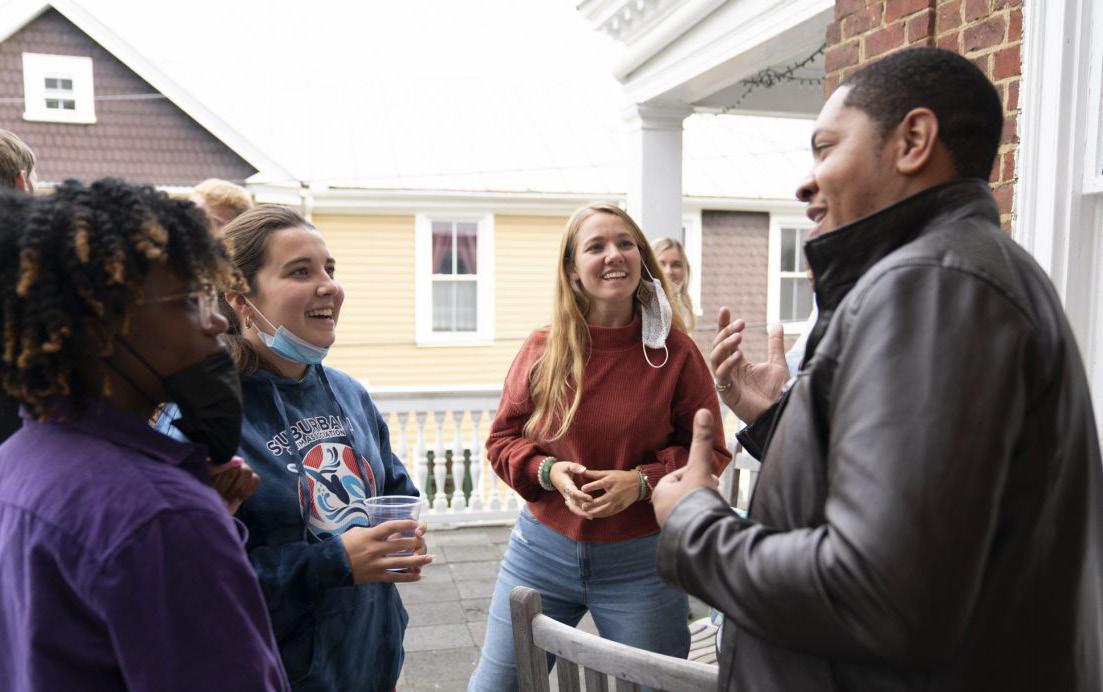
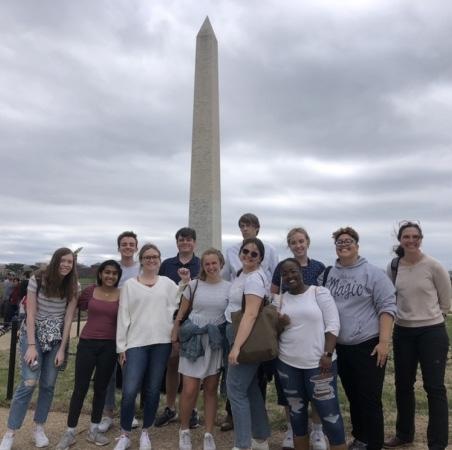
The Shepherd Program and Nabors Service League sponsored two trips to Washington D.C. in the spring. On March 19th, 2022, students and alumni visited the National Museum of African American History and Culture and then reflected together over dinner. On April 22nd, 2022 students visited alumni in their workplaces to explore social impact careers. The April event culminated with a Shepherd Affinity Alumni event.
did they make us look ugly?”
they were trying to be mean,” her mother said.
Her mother stayed silent. Looking at the caricatured Black dolls with contrived expressions of naivety and happiness in the Jim Crow era, she had no answer to give her young Black daughter. Standing a few feet away, I marveled at the difficulty of explaining centuries of inhumane oppression in an empowering way. But the National Museum of African American History and Culture managed to do it.
The Shepherd program sponsored a day trip to Washington D.C. where students visited the Lincoln Memorial, Vietnam War Memorial, and the National Museum of African American History and Culture. On the walls of the Lincoln Memorial, I read the inscription of Lincoln’s Gettysburg Address, which reflected on America’s struggle to adhere to the proposition “All men are created equal”. Later, I spent hours tracing the history of this struggle for African Americans in our country, scarred by the cruelty but inspired by the bravery. We ended the day by having dinner with alumni. In true Shepherd fashion, the ride back home was filled with reflections on our experiences during the trip. It was a wonderful way to spend the day with fellow students, engage with alumni, and have an immersive experience.
Shepherd is—and always has been— special because of the people involved! The connections and community here are invaluable to what we do and why we do it. In the Shepherd Alumni Mentor Program, our goal is to make and maintain the meaningful connections that provide encouragement, advice, opportunities, and enjoyment, especially during life’s transitions: from college to career, from one career to another, and beyond. The program creates a supportive community of alumni and community partners with a shared interest in living out the Shepherd mission through their professional and/or civic lives. n
Emmanuel Abebrese ‘15
Joseph Lee Charles Allen ‘99 Katana Evans
Duke Cancelmo ‘80 Nick Watson
Cynthia Cheatham ‘07 Ella Powers Charlotte Collins ‘14 Elizabeth Grist
Bethlehem Dammlash ‘06 Ashley Shugart
Chloe Doto ‘16
Lexi Baumeyer
Dave Foster ‘98 Justin Littlejohn Leah Gose ‘15 Joey Dickinson
Anjelica Hendricks ‘15L Mansi Tripathi
Norman Kim-Senior ‘05 Kushali Kumar Tran Kim-Senior ‘05 Chloe Parsons
Quiana McKenzie ‘08 Bri Mondesir Elizabeth Mugo ‘19 Marilyn Sample Maisie Osteen ‘14L Andrew Harris
Kerriann Shabanowitz ‘13 ‘16L Sarah Hollen
Jamila Seaton ‘09 Betelihim Haile Sonia Siu ‘07 Will Robertson Stacy McLoughlin Taylor ‘02 Mary Wilson Grist
Alvin Thomas ‘14 Grayson Nelson Chris Washnock ‘12 Sinan Abuzaid, Andrew Claybrook Morten Wendelbo ‘12 William Baya
Jonathan Wortham ‘04 Dolph Maxwell Shiri Yadlin ‘12 Camilla Beeley Commencement.
Congratulations to Bri Mondesir — a POV minor, CKWL President and Bonner Scholar — on receiving the Algernon Sydney Sullivan award, an honor given by faculty to a graduating student who demonstrates outstanding character and service to others.

Director of the Shepherd Program for the Interdisciplinary Study of Poverty and Human Capability; Associate Professor of Ethics and Poverty Studies


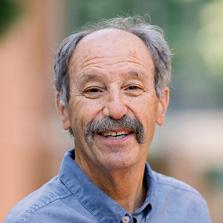


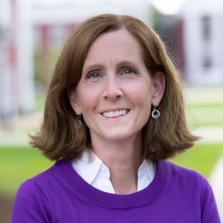
Jenny Davidson Assistant Director
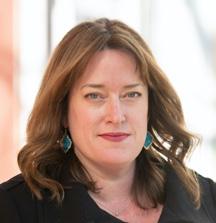

Tim Diette Executive Director of the Shepherd Higher Education Consortium on Poverty; Professor of Economics


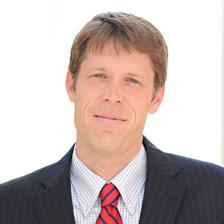
Associate Director Bonner Program Director Instructor of Poverty Studies

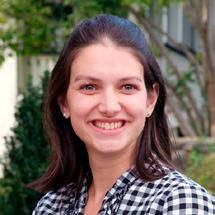

Katie Shester
Jon Eastwood Professor of Sociology; Sociology & Anthropology Department Chair



Our newest member joins the program after working as a Pre-doctoral Fellow for Excellence through Diversity at the University of Pennsylvania while completing his doctoral studies in sociology at the University of Virginia.
list of affiliate members available at: my.wlu.edu/the-shepherd-program/about/faculty-and-staff

Emmanuel Abebrese ’15 Milwaukee, WI
Charles Allen ’99 Washington, D.C.
Duke Cancelmo ‘80 * Houston, TX
Cynthia Cheatham ‘07 Washington, D.C.
Bethlehem Dammlash ’06 Washington, D.C.
George Foote ‘71 Alexandria, VA
Leah Gose ’15 Cambridge, MA
Mason Grist ’18 Austin, TX
Anjelica Hendricks ‘15L Philadelphia, PA
Norman Kim-Senior ‘05 Alexandria, VA
Tran Kim-Senior ‘05 Alexandria, VA
Dean Chawne Kimber Lexington, VA
Nancy McIntyre Lexington, VA
Quiana McKenzie ‘08 Raleigh, NC
Elizabeth Mugo ’19 Washington, D.C.
John Nolan ‘70* Chevy Chase, MD
Maisie Osteen ‘14L Richmond, VA
Kerriann Shabanowitz ’13 ’16L Burke, VA
Sonia Siu ‘07, Chair Elect Boston, MA
Stacy McLoughlin Taylor ‘02* Philadelphia, PA
Alvin Thomas ‘14 St. Louis, MO
Morten Wendelbo ’12 College Station, TX
Eric White ‘74, P’10* Richmond, VA
Jonathan Wortham ‘04, Chair Atlanta, GA
Shiri Yadlin ‘12 Washington, D.C.
* Ongoing ex officio member as a former chair

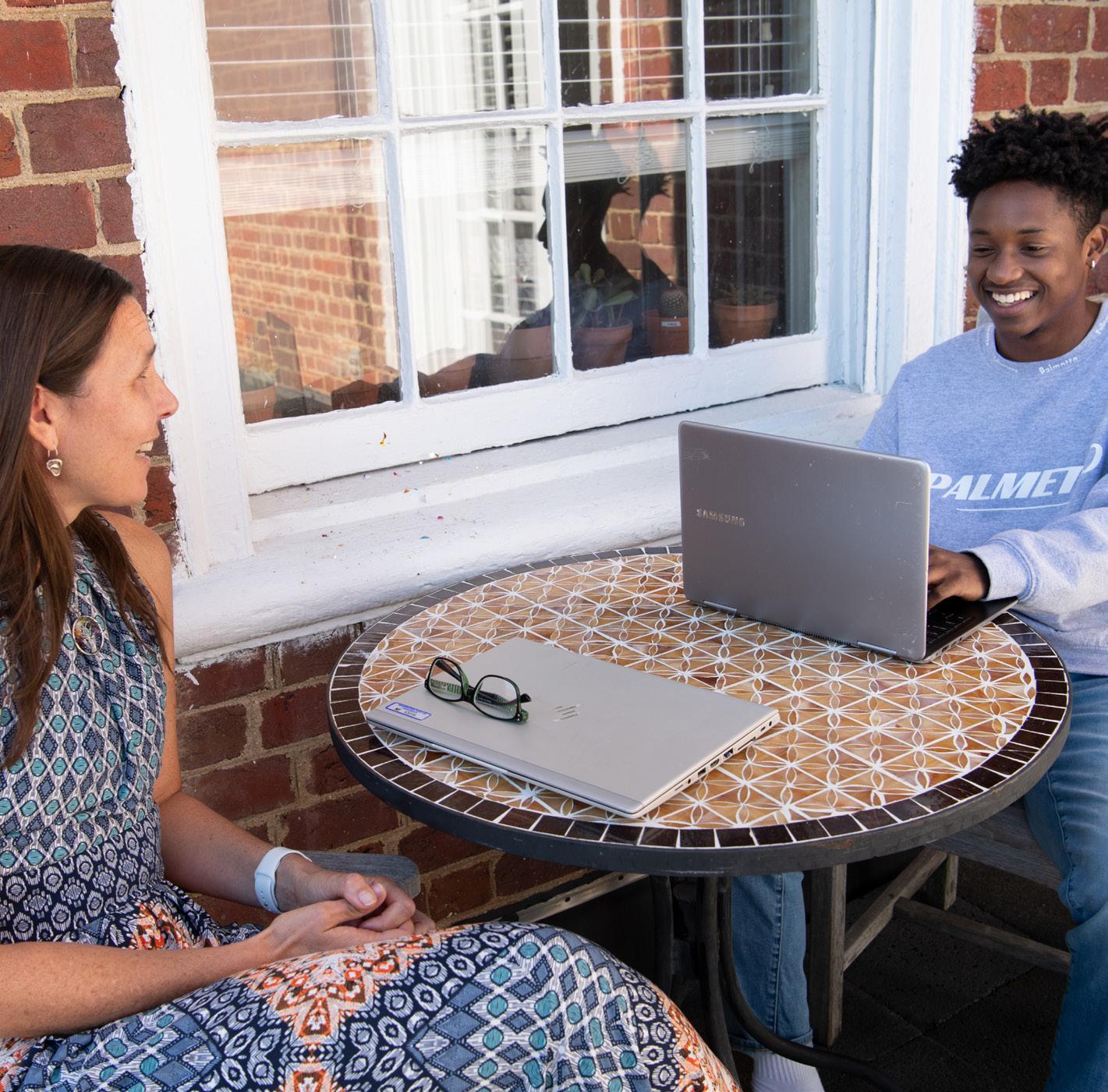



 Professor Melina Bell’s winter term POV 101 class.
Justin Littlejohn ’22, Hannah Puckett ’23, and Jenny Davidson ’08 plant daffodils in remembrance, a Charley family tradition, before the Class of 2020 Commencement ceremony on September 11th.
Fran Elrod and Justin Littlejohn ’22 debrief and reflect on his Shepherd Internship working with Dave Foster ’98.
POV 102 students engage with kids at the Lexington Office on Youth Afterschool Program. Marisa Charley’s students collaborated with the children to create smash books.
The Mattingly Team wears green! Emily Brookfield ’23, Ryan Brink ’18, Jenny Davidson ’08 and Avani Kashyap ’25.
Andrew Claybrook ’22 presents on his Shepherd Internship to Shannon Tozier ’25 and Lela Casey ’25
Professor Melina Bell’s winter term POV 101 class.
Justin Littlejohn ’22, Hannah Puckett ’23, and Jenny Davidson ’08 plant daffodils in remembrance, a Charley family tradition, before the Class of 2020 Commencement ceremony on September 11th.
Fran Elrod and Justin Littlejohn ’22 debrief and reflect on his Shepherd Internship working with Dave Foster ’98.
POV 102 students engage with kids at the Lexington Office on Youth Afterschool Program. Marisa Charley’s students collaborated with the children to create smash books.
The Mattingly Team wears green! Emily Brookfield ’23, Ryan Brink ’18, Jenny Davidson ’08 and Avani Kashyap ’25.
Andrew Claybrook ’22 presents on his Shepherd Internship to Shannon Tozier ’25 and Lela Casey ’25
Looking forward to 2022-2023: The Shepherd Program celebrates 25 years on campus
